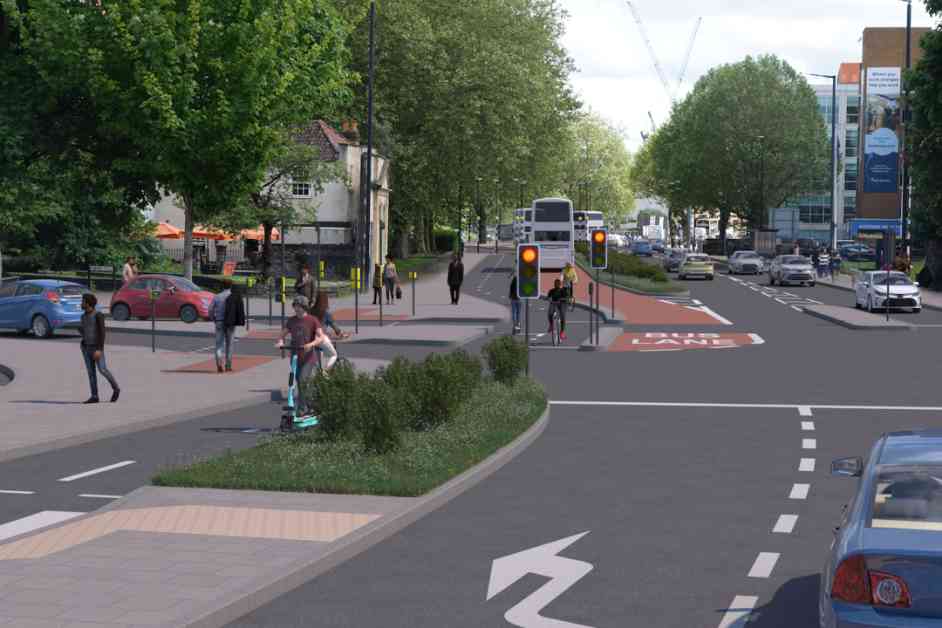The new Green-led council in Bristol has unveiled a revolutionary proposal to ban cars in the city center. Ed Plowden, the chair of the transport committee, has ambitious plans to prioritize buses and cycling infrastructure in the city center. Some roads will be closed to cars, sparking mixed reactions among voters. A public consultation is underway, with more proposals, including the ban of cars on Park Street, likely to follow.
Following the recent election, the Greens fell short of an overall majority, necessitating support from other parties to implement their plans. Plowden outlined the Greens’ vision for reforming the city’s transport system, emphasizing the need to address issues such as congestion, air quality, and bus market collapse. The council aims to invest £540 million across the West of England by 2027, with a significant portion allocated to Bristol.
Proposed changes to the city center include creating new bus lanes, cycle routes, and pedestrian zones. Specific projects, such as a north-south express busway and reservation of certain bridges for buses and bikes, are part of the plan. These changes align with efforts to reduce through-traffic in the city center, allowing cars to access parking areas but not drive through the area.
While the proposed changes were initially developed under Labour leadership, the party continues to support the plans. Labour’s new transport lead, Tim Rippington, emphasized the importance of collaboration between parties to advance the transport agenda. The public consultation on the proposed changes is ongoing, with a deadline set for September 30th.
In response to concerns about the fast-tracking of projects, Plowden defended the need for expedited action due to time constraints and funding limitations. The council’s focus is on delivering the proposed projects efficiently and effectively. With the support of Labour councillors, the accelerated approval process for transport initiatives was confirmed.
The debate between Labour and the Greens centers on the pace of implementation and the allocation of responsibilities rather than ideological differences. Both parties recognize the urgent need to address transport challenges as Bristol’s population continues to grow. Rippington highlighted the necessity of providing alternative modes of transportation to prevent the city from becoming clogged with cars.
As Bristol grapples with its transport issues, the public consultation remains open for feedback until the end of September. The results will be analyzed in the coming months to inform the next steps in the city’s transport transformation. The proposed changes aim to create a more sustainable, efficient, and accessible transport system for Bristol residents.













